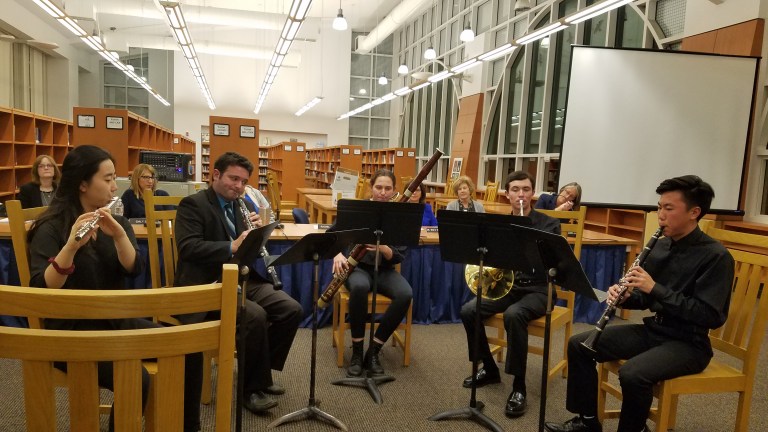
By Maylan L. Studart
After a soothing musical performance by the Schreiber Windwood Quintet, the Port Washington Board of Education turned its focus on Tuesday night to figuring out how to abide by the Every Student Succeeds Act, the nation’s main education law for all public schools.
The board spent the bulk of its meeting discussing new reporting requirements under the 2015 act, an update to the No Child Left Behind Act. The board, however, seemed to be bracing for what’s to come.
“This is the big part of ESSA, the accountability measures, and it’s quite comprehensive and it’s very detailed,” said Superintendent Kathleen Mooney.
After an abridged PowerPoint presentation on the law by Mooney to the board and the 17 people present, the board approved all agenda items.
All New York schools will have to abide by the new requirements to have access to $1.6 billion in annual federal grants.
Mooney said the premise of the act is to increase equity of outcome for all schools in the country. The law attempts to address achievement gaps by keeping a scorecard on individual schools and school districts on many factors to achieve transparency and accountability. Some of its goals include increasing diversity and decreasing socioeconomic isolation of pupils, reducing gaps in achievement of subgroups and ensuring cultural responsiveness.
Board members and others present were unnerved by the new regulations they say sounds good on paper but may not be in practice.
“The devil is in the details,” said Trustee Larry Greenstein. “What they say all sounds like it’s great, but I’m not sure when we get to the nitty gritty it’s going to reflect reality.”
Greenstein pointed out the intricacies of comparing a large school with a smaller one with small classrooms, such as Port Washington’s schools. He said that in the metric of absenteeism, a school with smaller classrooms will have a worse score because of class size.
Three members of the Port Washington Parents’ Council agreed.
“This is an incredibly taxing overhaul of the law,” said Julie Epstein, co-president of the Port Washington Parents’ Council. “They really will have to take a lot more time and energy in data processing in determining accountability and looking at each individual school.”
Mooney said she will start the process of walking board members through student achievement accountability requirements and measures during the board’s next curriculum committee meeting on Friday.
The next ESSA presentation will be during the next board meeting on Dec. 4 at the high school library. Mooney said these meetings are precursors to the budget process and she wants to make people more aware of the new requirements.
“We’re just scratching the surface, but I’m just setting the table for what will be required to report,” said Mooney.
The scorecards are supposed to not only help parents see their child’s school’s performance but for the state and school districts to adjust where necessary. More reporting components of the scorecard will be phased in next year.
Bracing for more well-meaning bureaucratic hurdles that may not work in practice, Epstein said she is cautiously optimistic.
“In the end, I hope that it produces the outcome that ESSA was written to produce,” said Epstein. “I’m not sure that it will, but I hope that it does.”






